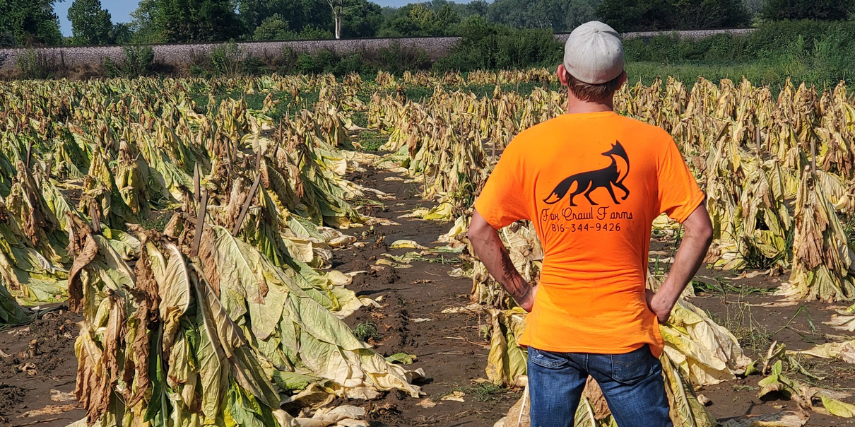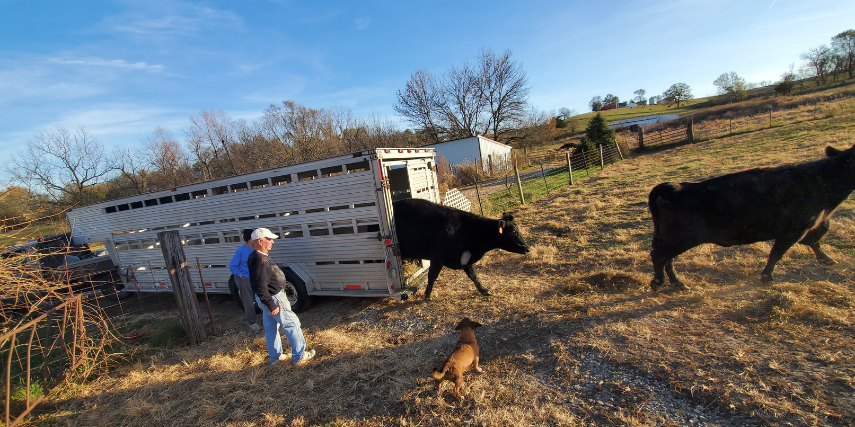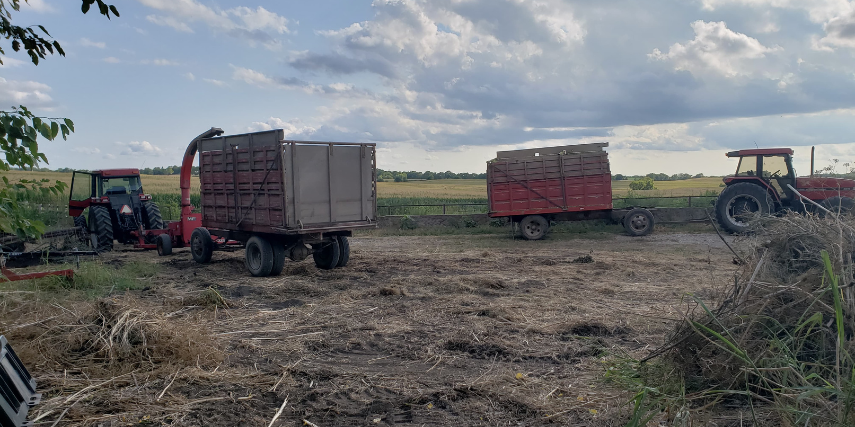Today is Labor Day. For many people, that conjures images of last chance summer barbecues, afternoons at the lake or pool, and restful family time before getting into the full swing of the school year. Some people take the long holiday weekend to do manual labor around the house. You may think of the history of American labor laws, or the poor working conditions of the past. But do you think of husbandry, biochemistry or roadside produce stands?
Often, in discussions about labor, we leave out one of our most vital and overworked human resources: farmers. If you live in northwest Missouri, you almost certainly know at least one farmer. If you work at a desk job, there may even be a farmer sitting in the next cubicle.
Mike Flora, a local farmer and resident of Faucett, Missouri, said, “Farmers don’t get Labor Day off.” He has cows to feed, crops to tend, machinery to maintain, and a business to run. His wife Ashley takes chicken duty. Mike took over his grandpa’s farm, which includes 1,600 acres, with the business being roughly half hay and cattle, half soybean and corn row crop, and two acres of tobacco. Soybeans and corn are the two most commonly-grown crops in Missouri.

Mr. Flora also owns and operates a gravel business to supplement his income. As he put it, “Small farmers don’t usually have enough money to just farm. It has gotten so expensive, and it’s almost tripled in the past year.” He said most farmers he knows have jobs in addition to farming.
This observation aligns with statistics. Missouri State Director of Agriculture Education Keith Dietzschold said, “It costs a lot of money to farm. There’s no question about that.” Most farming families have at least one off-farm source of income. He continued, “The farmer may be full-time, but there’s usually some kind of supplemental income with that.” The additional income helps take care of the everyday expenses of family living, while the agriculture money gets reinvested in the farm for the following year’s expenses.
Mr. Dietzschold recognizes that technology can be expensive, and it is a rising cost. “Technology is burdensome, but it is essential for us to continue to produce enough food to feed the world,” he said. It increases the value of the land and keeps animals in good health.

Adding to financial concerns, a farmer’s income is dependent on the weather and the demand of the consumer. The business model for farming is unique as well. To quote President John F. Kennedy, “The farmer buys everything at retail, sells everything at wholesale, and pays the freight both ways.” Locally, Mr. Flora was affected by the closing of the stockyards in St. Joseph. He now drives farther to sell his cattle in Osborn.
Mr. Dietzschold said even with these challenges, agriculture is an ideal field for young people to pursue. Agricultural careers offer many options, and the people in these fields are becoming more diverse. For instance, there are many fields that all contribute to precision agriculture, including production farming, agribusiness, agriscience, communication, technology and mechanical agriculture. He said, “We need more people in agriculture. We need more people in production agriculture. We need more people in all agriculture fields.”
Mr. Dietzschold says he feels farmers are respected in their communities, but not in the world or nation at large. There are many misconceptions about what happens in agriculture and why. He said, “The American farmer today is more productive and sustainable than we’ve ever been, and we want to be good stewards of what we do so we can continue to produce food. It’s estimated that we need to double our food, and the way we’re going to be able to do that with the resources we have is through good stewardship and technology.”

When asked how people can become more connected to where their food comes from, Mr. Dietzschold said, “I think it’s okay if you say [to a farmer], ‘I’d like to come out and spend the day.’ But, as a society, we don’t think about that. Sometimes you may not be able to see everything because of biosecurity and keeping our animals healthy, but you could get some experience. Learn about the comfort for animals and the work that goes into it.” He feels most farmers would be receptive to such a request.
Mr. Flora seemed to echo that sentiment, saying, “I think they’re probably the most down-to-earth people you’ll ever meet. Just plain Jane, that’s most farmers in America.”
That humility plays into a farmer’s demanding Labor Day activities. While you ponder the current state of the workforce or listen to your burgers sizzle on your grill, take a moment to think about who put the work into producing your food. Odds are many of them are still putting in the work on this day off. On Labor Day, let’s raise our mugs to the hardworking members of the agriculture industry.


